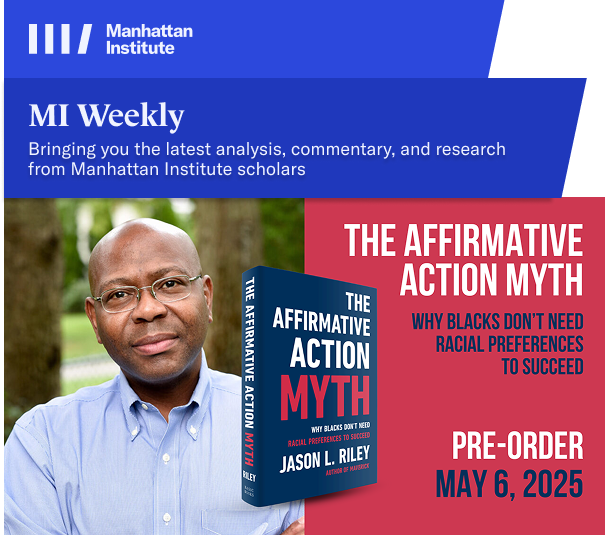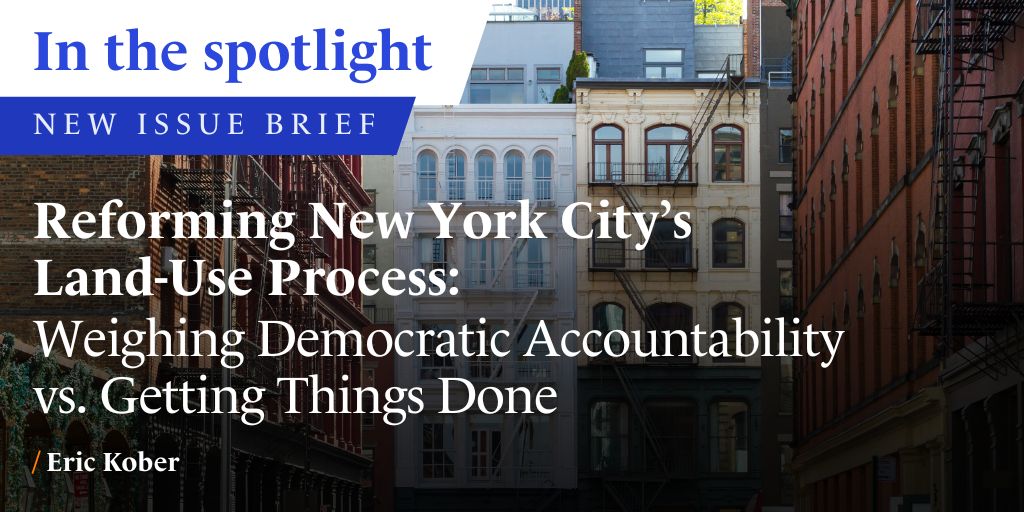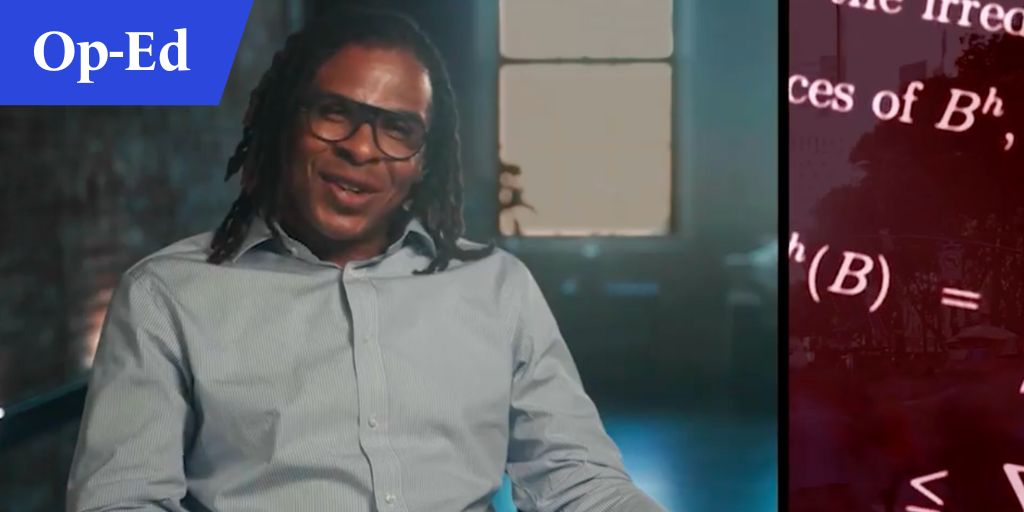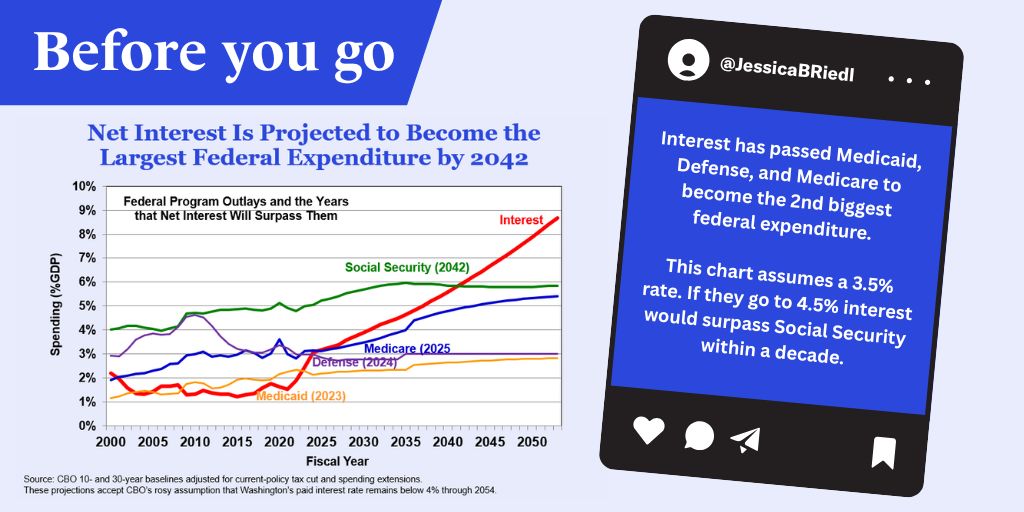Good morning:
This week, MI scholars examined how to push back against the dangerous strain of left-wing radicalism that has captured America’s most powerful institutions—and much of its politics.
In City Journal, Jesse Arm and Charles Fain Lehman argue that the recent assassination attempt on Pennsylvania Governor Josh Shapiro—carried out by a man with unmedicated mental illness, out on bail for a violent crime—offers the 2028 presidential contender a moment of reckoning. Shapiro could use the attack to break with his party’s pro-terrorist fringe by backing popular, bipartisan reforms: stronger civil commitment laws, a long-stalled cash bail bill, and aggressive prosecution of antisemitic and other ideologically motivated violence. Shapiro often talks tough, but he has repeatedly folded to pressure from the activist groups that have captured his party—this moment is his chance to lead.
As Ilya Shapiro explains, that same activist pressure helps explain why the epicenter of antisemitism in America has shifted to elite university campuses like Harvard—which have embraced anti-intellectualism and identity politics over merit and education. The Trump administration’s fight with Harvard isn’t just about its weak response to the October 7 attacks in Israel—it’s about a deeper trend toward ideological corruption, bureaucratic bloat, and cultural decay in higher education.
In City Journal, James Copland takes a closer look at one of the more aggressive tools the administration is considering: revoking Harvard’s tax-exempt status. Legally, Copland argues, the case may be strong. Under Bob Jones University v. United States, eradicating racial discrimination is a “compelling governmental interest” that can justify such action. But even if the move is legal, Copland cautions, it may be unwise. Section 501(c)(3) of the tax code applies to all nonprofits—not just universities. If the executive can target Harvard today for its stance on Palestine, a future administration could just as easily target any nonprofit for supporting Israel—or for any other politically inconvenient view.
Also this week, in the Wall Street Journal, MI senior fellow Roland Fryer presents new research that sheds light on the roots of America’s deepening political polarization. Fryer asks whether there’s a rational explanation for why people—even when presented with the same facts—often emerge more divided. He finds that prior beliefs shape how individuals interpret information, leading them to double down rather than converge. The implication is stark: even if Americans consumed the same news—rather than sorting into Fox News and MSNBC echo chambers—more information wouldn’t lead to more agreement, but to sharper polarization.
Finally, this newsletter highlights a new report from Eric Kober on NYC’s broken land-use process. Kober highlights two bold reforms—shortened environmental reviews and elimination of council members’ vetoes—that the City Charter Revision should take to jumpstart growth in the Big Apple. Keep reading for all these insights and more. Nick Saffran
Senior Editor |
|
|
Reforming New York City’s Land-Use Process:
Weighing Democratic Accountability vs. Getting Things Done By Eric Kober | Manhattan Institute In New York City, gone are the days of master builder Robert Moses, “the man who got things done,” steamrolling over his political opponents to build highways and enact urban renewal plans. Today, the NYC land-use process is much more democratic—and much less effective. This spring, Mayor Eric Adams appointed a group of New Yorkers to the NYC Charter Revision Commission to revisit the question: Who should have the power over the development of the city’s land? In a new issue brief, MI senior fellow and longtime NYC city planner Eric Kober recommends two major changes to shake up that power and put momentum back into building. First, lengthy and costly environmental reviews must be reformed. Second, council members’ vetoes on proposals affecting their districts must be removed.
The NYC Charter Revision Commission can substantially change the city’s future trajectory—if they are bold enough to reform a land-use process that fails to deliver what the city needs |
|
|
By Roland Fryer | Wall Street Journal “How can two people who observe the same information come away with starkly different conclusions? And why do views on factual questions, such as the cause of global warming or the strength of the economy, break down so neatly on ideological lines? “There was a very significant correlation between a subject’s prior belief and his interpretation of the evidence. More than half of our sample exited our experiment with more extreme beliefs than at the start, even though the evidence presented to them was neutral.
“The discouraging implication is that in a world where information is plentiful, people will become more divided, not less. That’s true even if they all see the same information—which they don’t when they can choose between Fox News and MSNBC. And it’s true even if our widening divisions prove deeply unhealthy for our country.” |
|
|
Can President Trump Fix Harvard?
By Ilya Shapiro | Fox News
“The only thing surprising about these developments is that they took so long. What we’re seeing isn’t the decades-old conservative complaint about liberal professors, but weak leadership that placates the illiberal left that now drives campus culture. University officials facilitate and even foment social-justice mobs who would consider the Berkeley Free Speech Movement, which sparked universities’ leftward turn in the 1960s, to be a bastion of white supremacy.
“Federal law is meant to prevent such things, at least at schools that accept the copious strings that come with federal funding. That includes everything from accounting standards to prevent waste and fraud to basic civil-rights obligations. Harvard has been lax on complying with these requirements. Indeed, the Foundation for Individual Rights and Expression named Harvard the worst school in the country for free speech for the second straight year.”
|
|
|
Josh Shapiro Was Targeted for Being Jewish.
Will He Do Anything About It? By Jesse Arm & Charles Fain Lehman | City Journal
“This attack represents, then, a failure of the systems meant to keep people safe. The question now is whether Governor Shapiro will seize the moment to fix them. He could buck his party’s pro-terrorism wing and back popular, common-sense fixes to bail, commitment, and domestic-terrorism laws. Will the likely 2028 presidential contender step up?
“If Shapiro fails to confront the problems the Balmer attack embodies, it will be not only a failure but also a missed opportunity. By speaking forthrightly and demanding policy change, the governor could back popular reforms, burnish his moderate credentials, marginalize the radical wing of the party that kept him off the ticket, and consolidate his position as a potential future leader.” |
|
|
Can Trump Revoke Harvard’s Tax Exemption?
By James R. Copland | City Journal
“Depending on how exactly the administration frames its case in seeking to strip Harvard’s status, it may well be on firm legal footing. But that doesn’t make it a wise policy.
“Do conservatives, then, really want to expand the level of discretion given to tax bureaucrats answerable to the president? Do they want to allow an amorphous concept like “eradicating racial discrimination” to be used by Republican administrations to yank tax-exempt status from groups that support Palestine—or by Democratic administrations to do so for those supporting Israel? I think not. And I don’t think the Supreme Court wants to be the “tax exemption arbiter,” either.” |
|
|
For more information and media requests, please contact
communications@manhattan.institute.
Are you interested in supporting the Manhattan Institute’s public-interest research and journalism? As a 501(c)(3) nonprofit, donations in support of MI and its scholars’ work are fully tax-deductible as provided by law. |
|
|
Photo Credits: adamkaz/E+/Getty Images; Noah Berger/AP Photo; Anadolu/Getty Images; Wong Yu Liang/Getty Images; Catherine McQueen/Getty Images; Probal Rashid/LightRocket/Getty Images |
|
|
The Manhattan Institute works to keep America and its great cities prosperous, safe, and free. Manhattan Institute 52 Vanderbilt Ave. 3 floor New York, New York 10017
Want to change how you receive these emails?
Unsubscribe | Subscription Preferences
Copyright © 2025 Manhattan Institute, All rights reserved. |
|
|
|







